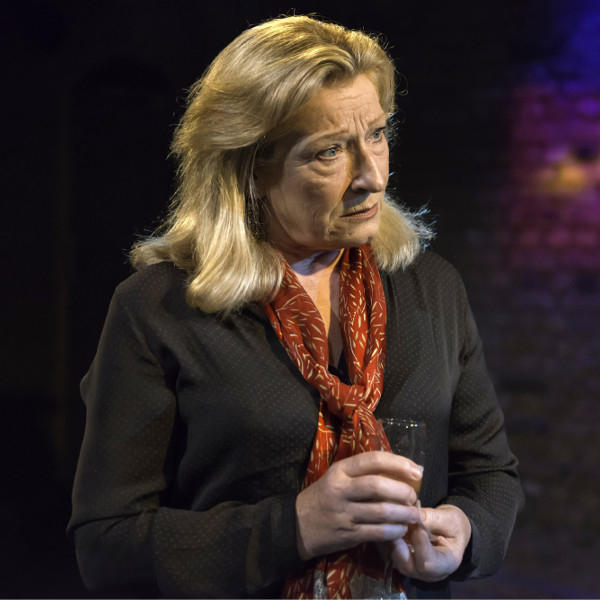Between Us (Arcola Theatre)

© Jeremy Abrahams
It’s good to see Sarah Daniels, one of the leading feminist playwrights of the 1980s, back in the theatre, the Arcola’s smaller space, with this sombre triptych – three actors, three stories – about adoption and consequent problems of love, sex and dependency.
Daniels herself said years ago that "feminism" had become as meaningless a word as "panty-girdle" but she still writes with a sure sense of rage, injustice and ironic purpose.
Her therapist, Julia (Charlotte Cornwell), has turned to stand-up comedy as her own way of dealing with an estranged daughter and job dissatisfaction, while Dave (Callum Dixon), a plumber, one of her clients, is depressed about his own daughter and haunted with the guilt of raping a vulnerable customer living in squalor with two children.
Julia’s other client is Teresa (Georgina Rich) who is trying to cope with problems of adjustment after adopting a boy; police call round after an incident in a car park. Rich also plays Julia’s recalcitrant daughter, Kath, whom she meets on railway stations. And you just wonder if Teresa might be the woman who called in Dave for more than she bargained for.
Teresa says you can’t, as an adopting parent, love people who aren’t biologically connected to you, an obviously false conclusion that masks her own sense of failure and tragedy. And John Burgess‘s severe production maintains this separation between the characters, who come and go, like actors at an audition, taking turns to address us over a dozen or so short-ish scenes in just 75 minutes.
Cornwell’s rather proud and mannish Julia is as stiffly awkward with the comedy routines – an opening salvo makes an odd leap from Dalston Junction to Virgin Trains snack boxes with sexual undertones – as she is with her own Kath, who mysteriously hails from Barnsley and works as a hairdresser. She might as well be living on another planet; well, she does – in Birmingham.
There’s a confessional twist at the end which half explains things, but there’s also a feeling of ends not being tied up. There’s also a streak of pain running through the performances, which are uniformly first-class and compelling. And as Julia points out in a stand-up adieu: the price of a ticket to the Arcola equals the latest cuts in housing benefits; so you might not be watching this show at all.










